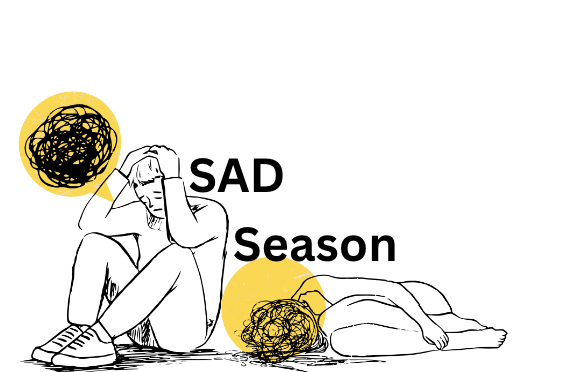Fear in the Vaccines
Imagine being excited for the months to come. Being optimistic about the world around you. Taking time to stop and smell the roses. Suddenly you can not smell the roses very well, you begin to wonder why is that? You are becoming congested, and can not bare to go outside anymore because your body aches. You decide to finally go the doctor only to find out you have become infected with the flu.
Flu season is here and at its peak and is vile to those affected. You may be thinking that now is the time to finally get the vaccine, however many people do not agree. Why? There is many misconceptions about the flu vaccine that tends to drive people away from actually getting the shot. These misconceptions have been disproven but are not widely talked about.
The flu is a respiratory infection that starts out in the lungs. The flu itself is divided into three different types A, B, and C. A and B occur every winter and C causes respiratory illnesses and is not as impactful as A and B. These viruses are very common in the population with 5%-20% of the population getting the flu and more than 200,000 get hospitalized. Each year around 36,000 people die.
According to Axios, the vaccine does work but there is handful of people that believe it does not. The percentage of people visiting the doctor has gone down by 1.1% due to the vaccine. In one week, 65% of the patients that have had the Type A influenza, and 35% of those patients had Type B influenza. These numbers can drop, but many people are under the influence that the vaccine causes other illnesses.
Getting the word out about the flu and ways to prevent is very important as well. So hospitals are not overflowing with patients infected with the flu. This would help prevent the spread of the flu through schools.
People choose to pass up the flu shot due to the common misconceptions that go around. Many choose to believe that you are risking getting the flu just by getting the shot that is supposed to protect you against the flu.
Dr. William Schaffner a preventive disease expert at the Vanderbilt school of medicine said “It’s a myth that you can get the flu from the flu vaccine”
It is a common thing to mistake common cold symptoms for the flu virus. Truth is Most reactions only last 1-2 days and are less severe than the flu illness itself. A reason as to why some people get the flu virus is because they might have been exposed to the virus shortly before getting the vaccine not giving the vaccine enough time to take its course.
The vaccine offers possible allergic reactions, however the allergic reactions are rare and occur within minutes or hours of getting the flu vaccine.
The flu vaccine in pregnant women is a controversial topic. There is a stigma of fear that ignites when it is brought up. Many people believe that autism is linked to the flu vaccine. However that is not the case.
Kaiser permanente conducted a study where the observed 196,929 that were born in Northern California Kaiser hospitals between the years 2000 and 2010. The study found that there was no correlation with pregnant women getting the flu shot and their child having autism.
The CDC stated that the flu vaccine in pregnant women can reduce the risk of flu illness in her baby.
Is it still worth to get a flu shot? The answer is yes. Although this question is debatable within many people, some may not be very educated on what the benefits and risks are to getting a flu shot. When you get a flu shot the effectiveness of the flu shot does not prove itself to be working until two weeks after you get it. Which is why a lot of people think that the flu shot is not effective. The cons of a flu shot are almost non existent, but even when it’s ineffective the benefits outweigh the harms. An amazing estimate from the CDC says that 9 million to 36 million will become ill with the flu, 140,000 to 710,000 will become hospitalized, and 12,000 to 56,000 will die each year.
It is important to get the flu vaccine since these infections can be life-threatening unlike other viruses. The illnesses are very dangerous among the elderly and children have a higher risk of dying due to the virus.
There are two different ways to prevent the virus. One way is through a shot and the other way is nasal spray. The shot contains killed influenza virus which strengthens your immune system. The nasal spray it is weaker killed influenza viruses. For 2017-2018 flu season it is recommended to get the shot rather than the nasal spray
Effectiveness is as high as 60%. Reasons why the flu shot is ineffective because scientists working on the vaccine begin too early on the shot which makes the vaccine less effective. With some cases people’s’ body may reject the vaccine, but this is rare.
No one wishes to receive the flu. It last for more than a couple of days. There is plenty of misconceptions about the vaccine itself that drive people away from getting it. If these misconceptions were ever talked about to put fears at rest, would there be a lower death toll from the flu?
Sources:
Carroll, Aaron E. “Why It’s Still Worth Getting a Flu Shot.” The New York Times, The New York Times, 11 Jan. 2018, www.nytimes.com/2018/01/11/upshot/flu-shot-risks-benefits-strain.html.
Cohen, Jon. “Why Flu Vaccines so Often Fail.” ScienceMag, 20 Sept. 2017, www.sciencemag.org/news/2017/09/why-flu-vaccines-so-often-fail.
“Influenza (Flu).” Centers for Disease Control and Prevention, Centers for Disease Control and Prevention, 3 Oct. 2017, www.cdc.gov/flu/about/qa/misconceptions.htm.
“Interim Estimates of 2017-18 Seasonal Influenza Vaccines Effectiveness-United States, February 2018.” Centers for Disease Control and Prevention, 16 Feb. 2018, www.cdc.gov/mmwr/volumes/67/wr/mm6706a2.htm?s_cid=mm6706a2.
O’Donnell, Jayne. “CDC: Flu Kills 13 More Children, Bringing Season’s Toll to 97 Kids, but May Be at Its Peak.” USA Today, Gannett Satellite Information Network, 23 Feb. 2018, www.usatoday.com/story/news/politics/2018/02/23/cdc-flu-kills-13-more-children-bringing-toll-season-97-kids/354424002/.
Office of the Associate Director for Communication, Digital Media Branch, Division of Public Affairs“Key Facts About Seasonal Flu Vaccines.”Center for Disease Control and Prevention, 30 Oct. 2017, www.cdc.gov/flu/protect/keyfacts.htm.
O’Reilly, Eileen Drage. “Flu Season May Have Peaked but Activity Remains ‘Elevated.’”Axios, 25 Feb. 2018, www.axios.com/flu-season-peaked-but-remains-elevated-1519419520-e1765c1b-c76b-41d6-bb25-ed4a068d2fd1.html.
Rettner, Rachael. “Flu Shot Facts and Side Effects.” LiveScience, 24 Feb. 2018, www.livescience.com/40279-flu-shot-information.html.
Stöppler, Melissa Conrad. “Flu Vaccine Side Effects, Effectiveness & Types.” MedicineNet, 8 Jan. 2018, www.medicinenet.com/flu_vaccination/article.htm#who_should_not_receive_the_flu_vaccine.

Hazel is junior, and is new to Lincoln High school. She is passionate about bringing light into controversial topics, she hopes to get and report the...







